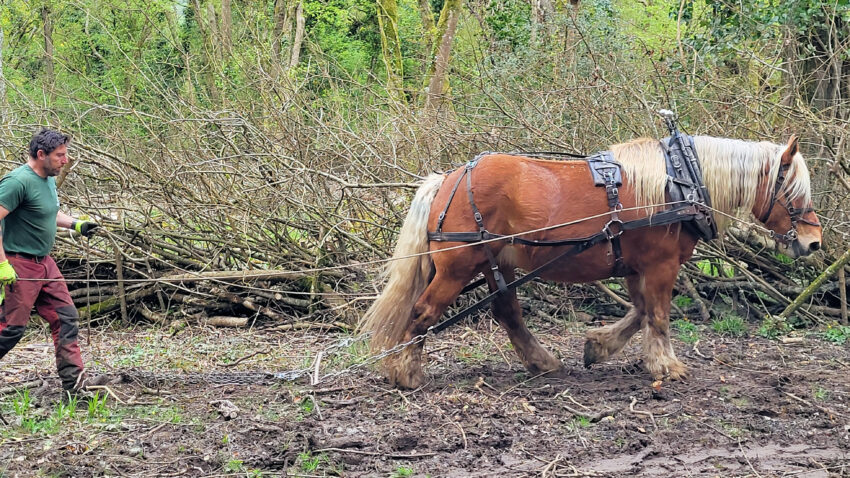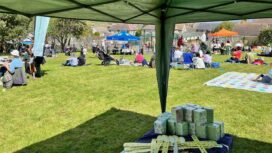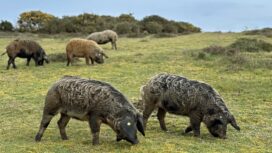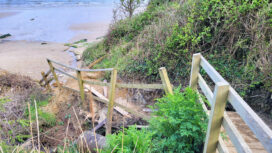An ancient tradition is being kept alive in an 800 year old woodland in Langton Matravers near Swanage in Dorset, to make sure it is in best health for the 21st century.
Rather than sending the tractors in, which can cause environmental damage, horse logger Toby Hoad, of Corfe Castle, is carrying out the work at Langton Westwood, with his heavy horses Etty and Celine.
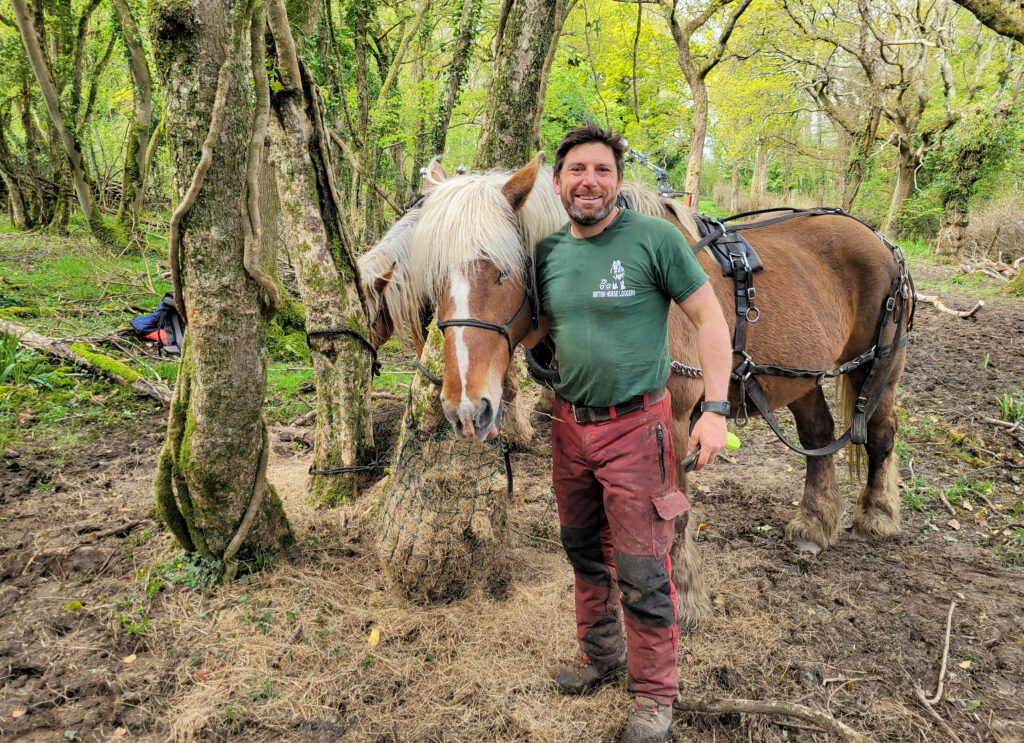
Toby Hoad, Etty and Celine are the team helping to manage Langton Westwood’s ancient landscape
Logging on the hoof
Langton Westwood is an ancient woodland owned by the National Trust, which is in need of coppicing to allow more light in and increase the diversity of animals, insects and plants.
Coppicing involves removing some trees to allow more light into the woods, creating sunny glades which will then attract wildflowers, butterflies, bees and other insects.
The logging is being carried out on the hoof, in a way that would have been familiar to the inhabitants of the priory which existed in the area until 1536 and who farmed the woods for fuel and food.
As a wildlife friendly alternative to extracting timber using tractors and heavy duty machinery, horse logging allows timber to be pulled out between standing trees, minimises soil damage and pollution, and causes less disturbance to wildlife.
Even when the timber – which will be used in the National Trust’s holiday cottages – is stacked into piles with the help of a crane and loader, it will be the horses which pull the machine to its next location.
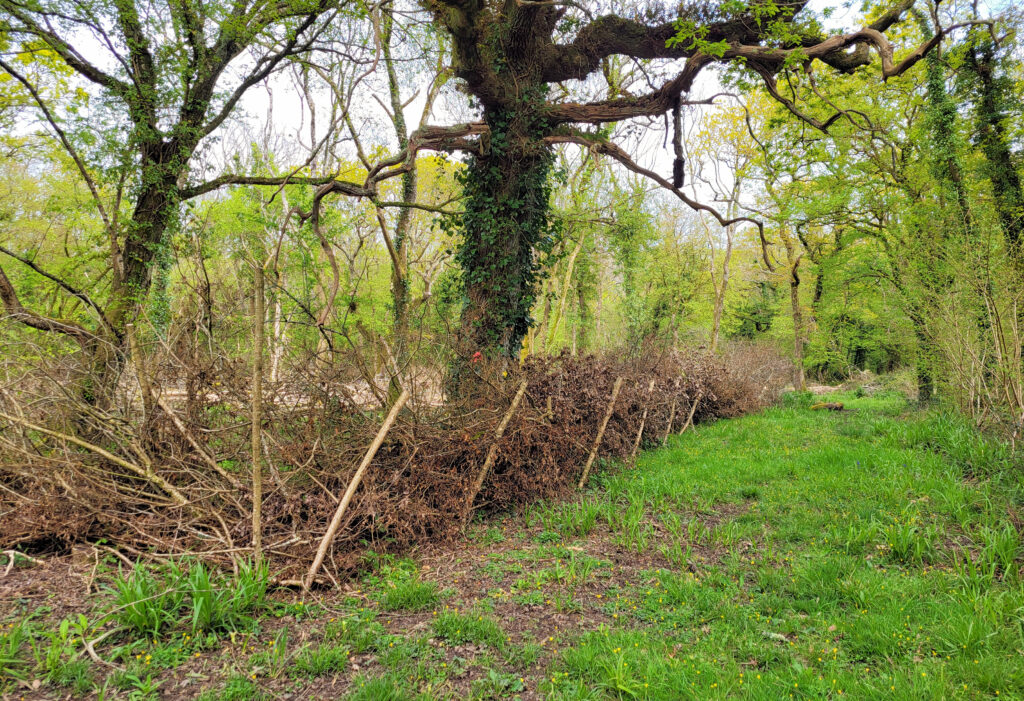
A dead hedge will give birds a nesting place and protect new shoots from the deer
Creating a dead hedge boundary
Toby, who runs his Dorset Horse Logging business out of Corfe Castle, has also been helping to create dead hedging around the coppiced area to replace wire deer fencing.
The idea is that the dead hedge provides a home for birds and other animals until it rots down to ground level over the years, by which time new shoots from the woodland floor are too big to be eaten by deer.
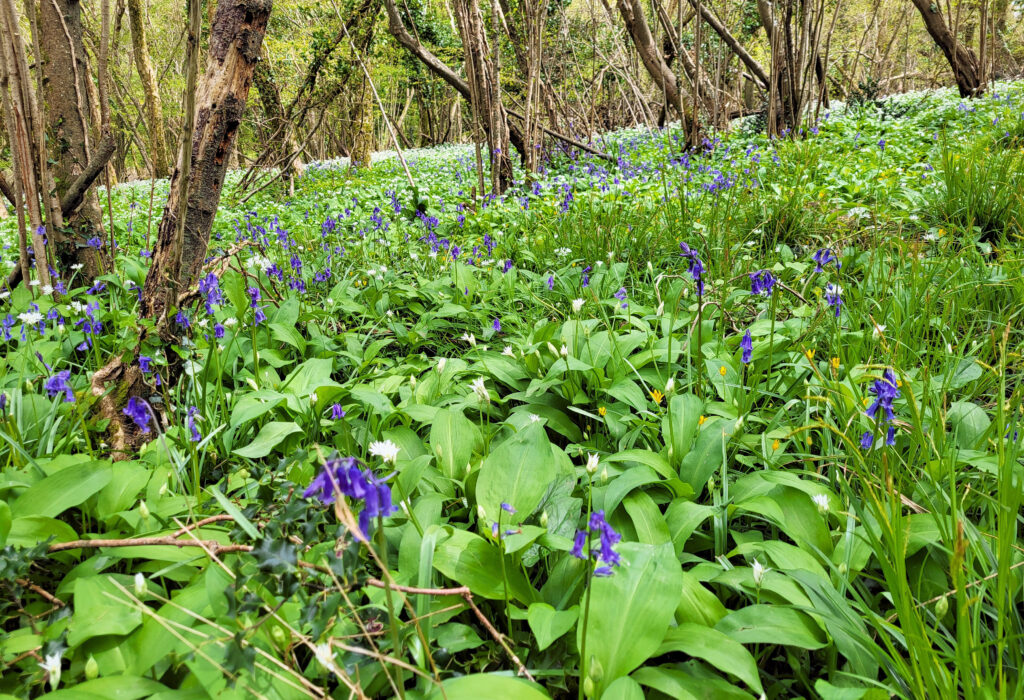
Creating sunny glades will encourage more wild flowers to grow and attract more insects and bird life
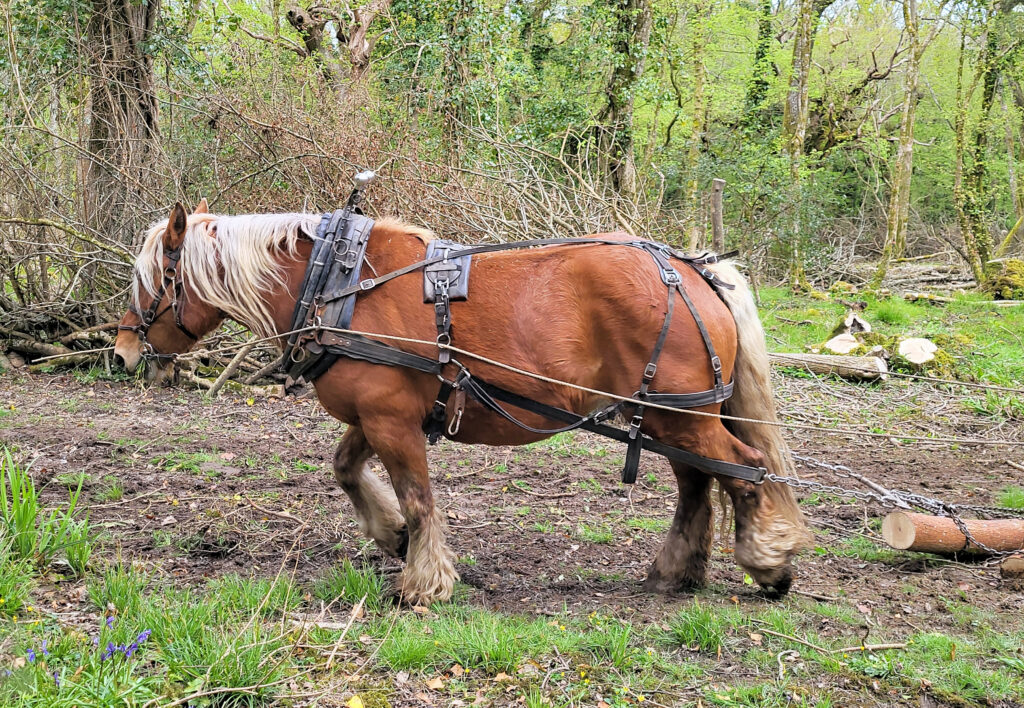
Unlike tractors, horses will pull felled timber out of delicate landscapes without causing any damage
Horses don’t damage the landscape
Toby Hoad said:
“We are working to get more light down to the woodland floor and get more diverse cover, a layer of shrubs and taller trees, to create more biodiversity and attract more wildlife.
“A lot of this was ash dieback, diseased ash trees which needed to be taken out, but there is also a little oak and some field maple, as well as hazel shrubs.
“I concentrate on felling and low impact extraction through the winter months and in the summer I do quite a lot of bracken rolling with the horses – mainly for the National Trust, but also work for Dorset Council, Dorset Wildlife Trust, the RSPB and Perenco.
“Horses can get to areas that tractors and quad bikes can’t and don’t damage the landscape, so we largely work up and down hills from June to August then it’s back to the woods again.
“They have so many benefits – they can work safely on the side of slopes, access woodlands through narrow paths and gates, become an attraction on public sites and cause no noise or pollution, while their dung is food for a range of insects!”
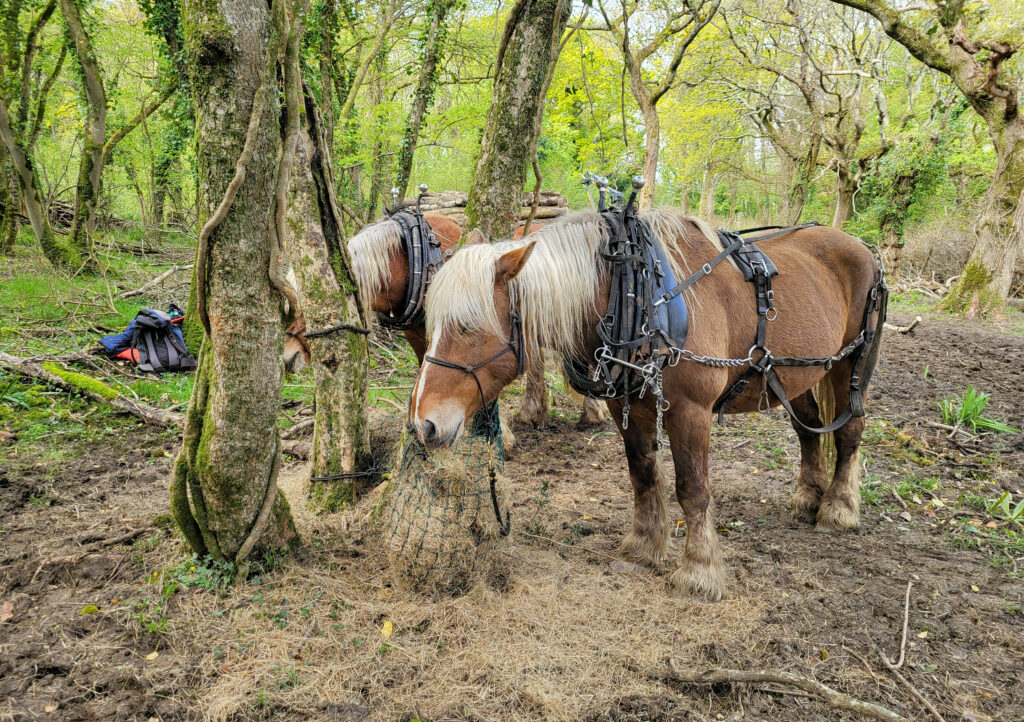
Etty and Celine enjoying their latest job in Langton Westwood
Ancient breed of Comtois horses
Celine and Etty are both Comtois horses, an ancient breed which comes from the Jura mountains on the border of France and Switzerland and are mostly used for ploughing the lines in vineyards and extracting timber off the mountains.
One of Europe’s oldest breeds of working horses, they have been used for clearing felled pine trees from Alpine forests since the sixth century and have served in the armies of the Sun King Louis XIV and Napoleon Bonaparte.
Etty, aged 10, and 14 year old Celine will carry on their work in Purbeck into their 20s before retiring, currently working four days a week alternating between an hour of logging and an hour of rest – with plenty of hay to munch.
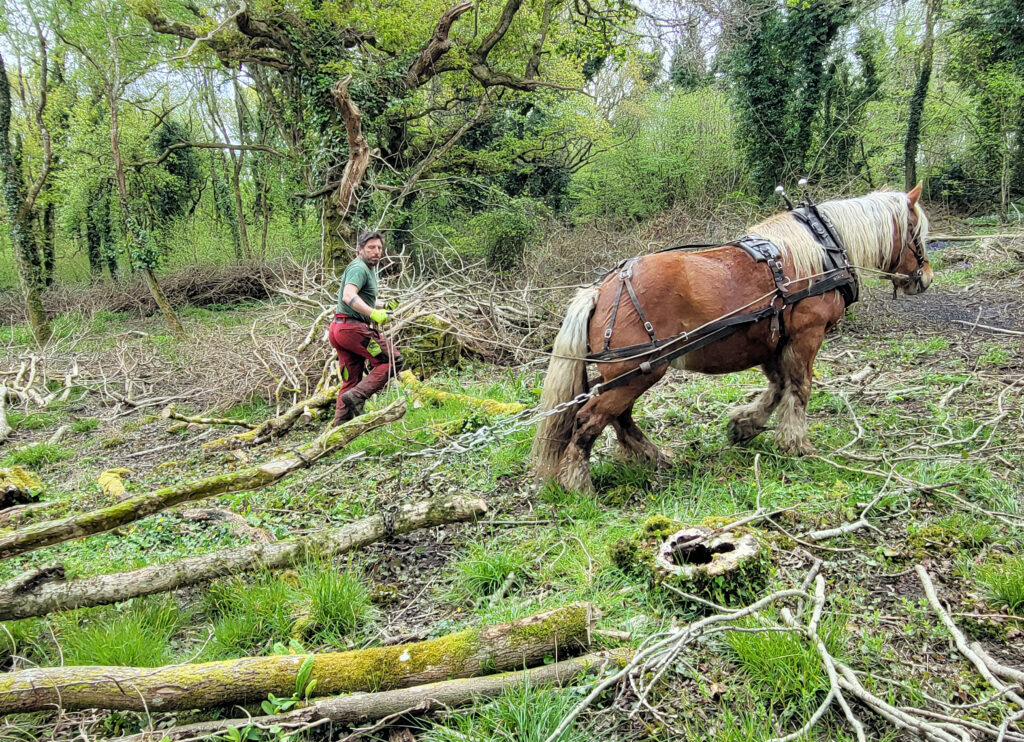
Making a living in the woods and protecting an ancient landscape at the same time
Making a living out of the woods
Toby Hoad said:
“I started off renting a piece of woodland on the Rempstone Estate, but I still had to pay my mortgage and all the bills so I had to find a way of making a living out of the woods. Charcoal making and firewood was what I came up with.
“I needed a way of moving timber about, but I couldn’t use a tractor without disturbing the bluebells and the wild garlic. I didn’t have the capital to buy a tractor but my wife had a little pony and we thought we would give that a go.
“Sadly, it didn’t work out as the pony suffered from sweet itch, an allergic reaction to bites from mosquitoes and gnats, so he wouldn’t stand still in the woods.
“But I did enjoy the work, so I went on a few courses, decided that was the way I wanted to go, got myself a horse and a trailer, and it has grown from there.”
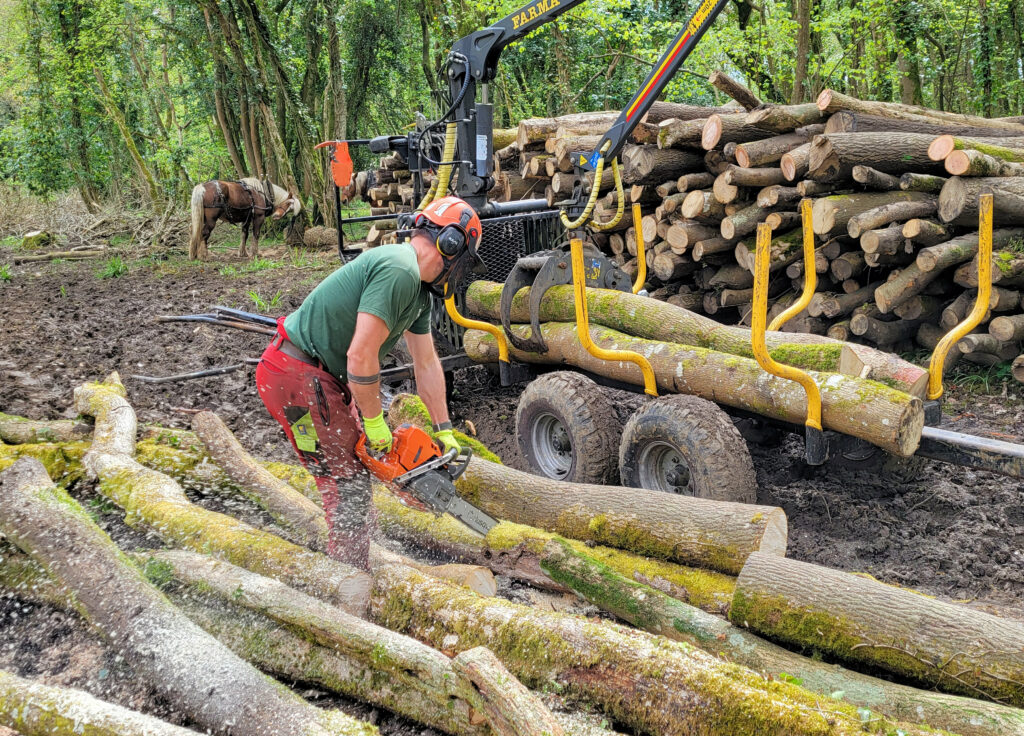
Once the felled trees are cleared from the woodland, they are cut into manageable sizes
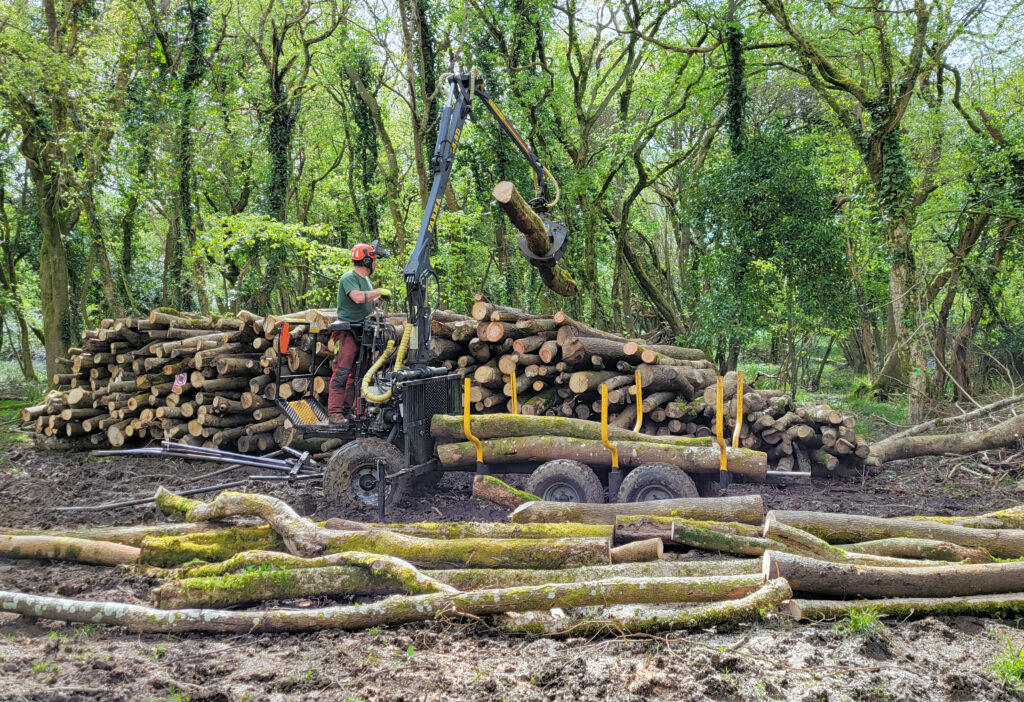
The crane loader, bought with help from the Area of Outstanding Natural Beauty (AONB) farming and landscape fund, is also pulled by the horses
“Physically, it is really demanding”
Toby added:
“Now, 90 percent of my work is with the horses, I’ve stopped doing the charcoal and it’s predominantly felling and extraction that I am focusing on.
“I am about to run a five day course at Rempstone for the British Horse Loggers, an introduction to horse logging encouraging new people into the industry.
“It can look like a very romantic way of life, but physically it is really demanding, and you have to be out in the open no matter what the weather or season – and it is hard work in the rain, especially for the horses.
“I used to run a greenwood workshop, teaching people how to make chairs and stools out of green wood using traditional tools like pole lathes, which you may see at country fairs.
“In time I would quite like to resurrect that idea and start running courses again. There’s a growing interest in making your own things, and spending time in the woods in itself is good for mental health.”
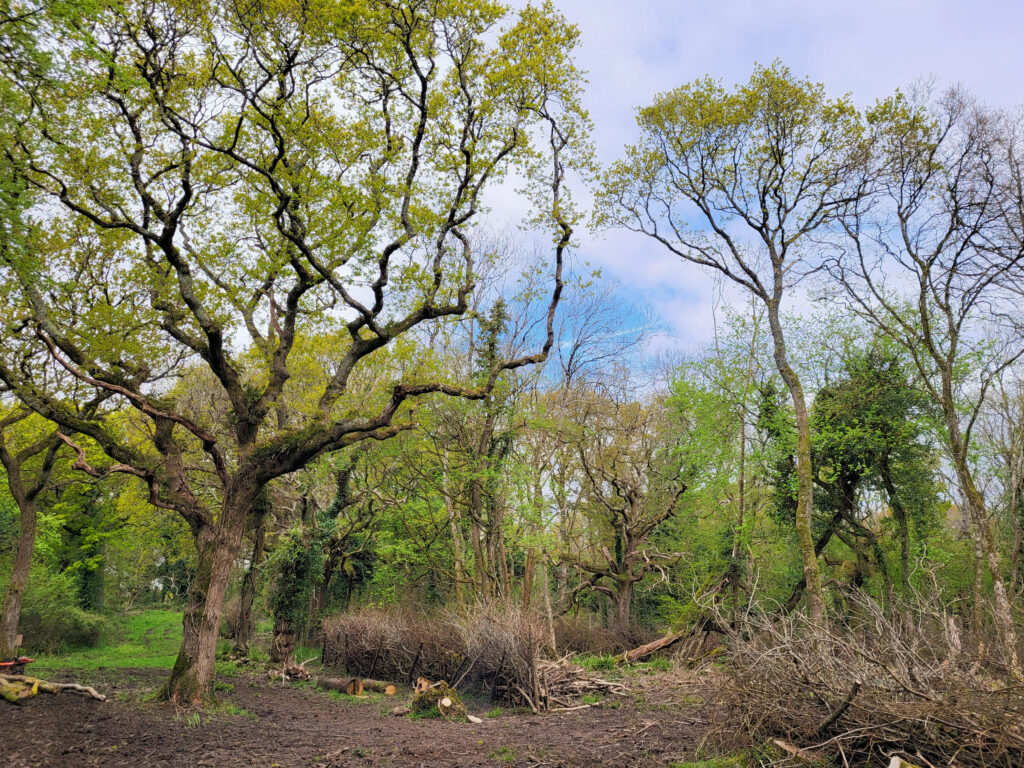
Mature trees used by bats and birds are left while others are thinned out to produce sunny glades in the woodland
Further information
- Find out more about Toby’s horse logging business on his website
